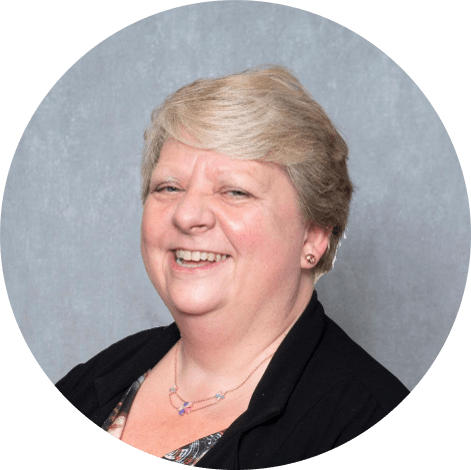 On World Pancreatic Cancer Day (18 November), NCRI Consumer Forum member, Lesley Goodburn, wrote about her experiences and how they motivated her to become involved in pancreatic cancer research.
On World Pancreatic Cancer Day (18 November), NCRI Consumer Forum member, Lesley Goodburn, wrote about her experiences and how they motivated her to become involved in pancreatic cancer research.
Everyone dreads the day when you or someone you love hears the words “You have cancer.”
There have been so many breakthroughs in cancer research, leading to treatments and surgical advances which have changed the impact of a cancer diagnosis in the last 50 years. Even though 1 in 2 of us will get a cancer diagnosis, many more people will receive treatment, and consequently, survival rates have been transformed in the last 50 years. However, the one cancer that remains at the bottom of the survival rates graph is pancreatic cancer, where survival rates have barely changed in the last 50 years.
Aged eight, I stared at the numbers on the page. They seemed incomprehensible. My mum encouraged me, “keep trying, don’t give up, you will get it” then, one day, the numbers made sense.
A few years later, on a cold Christmas day where the frost was crisp underfoot, I was wearing a furry Russian style hat, and tears were streaming down my face as I clutched the holly wreath. Then as I looked up, I saw my auntie, she asked, “what is wrong” I replied, “My mum doesn’t want to come with us.” It was the year after my father died suddenly. My mother never dealt with her grief, and she spent the remaining 20 years of her life frozen in misery and paralysed by the effects of grief. Despite this, I never gave up on her.
Twenty-six years later, my husband Seth is in hospital. I visit him, and there is a cloying sense of doom when I walk into the room. Seth turns to me with absolute desperation in his eyes and, with a quivering voice, tells me he has late-stage pancreatic cancer. Seth died aged forty-nine, just 33 days later. He gave me a precious gift. He asked me to share our story to raise awareness, his selfless way of giving me a purpose that I would never give up.
In the hours just after Seth died, I could not move. It felt like a swathe of warm stiff concrete had started to settle around me, enveloping me, keeping me upright, keeping me from falling apart and stopping me from moving.
But eventually, I did move… I could never give up, so I shared Seth’s story to raise awareness.
That awareness journey started seven years ago. Initially, I concentrated my efforts on fundraising to support Pancreatic Cancer UK, then I became more involved and was a lay member on the NICE Guidance committee for pancreatic cancer. Through the work on the NICE recommendations, it became apparent that the evidence from pancreatic cancer research was sparse, especially in psychosocial support and palliative care. These areas are especially important in a cancer where for every ten people diagnosed, one will get potentially lifesaving treatment, two will get chemotherapy, and the remaining seven will get no treatment whatsoever.
I could never give up on pancreatic cancer. After the experience of finding the lack of evidence available to the NICE guidance committee, I decided to concentrate my efforts on research. So, when the opportunity to join the NCRI as the consumer representative, representing patients, carers and others with experience of cancer, on the NCRI Upper GI Group cancer came along, I applied, and as a result, I also joined the subgroup for pancreatic cancer. I have been working with both areas since 2019, and I have benefited from the expert support of Pippa Corrie, the chair of the pancreatic workstream.
The pancreatic workstream has linked with the researchers working on the Precision Panic clinical trial, and we hold joint meetings to ensure that the synergies are explored and aligned. It is so rewarding to see this collaboration drive forward coordinated research.
Recently we held a workshop specifically on psychosocial support and explored some potential projects around diet, psychological support, and holistic support assessment. We are hoping to develop the outline projects through to funded research.
The role of the consumer representative in this work and the group’s overall work is really important to ensure that researchers hear the personal experiences of patients and carers. Working on the group, we had identified that most of our research was focussed on the traditional clinical trial, and as a result of being a consumer representative, I was able to work with the chair and to develop our session on psychosocial support
Despite the enormity of the task, the pancreas workstream continues to forge forward with research proposals across early detection, first and second-line treatments, surgery, and the focus of psychosocial support and palliative care in all areas of pancreatic cancer. We are determined to never give up.
So, on World Pancreatic Cancer Day, we are sure that the NCRI Group and pancreatic workstream will not give up. That one day soon, we will find the breakthroughs needed to improve survival rates for pancreatic cancer and that research will break the 50-year impasse.